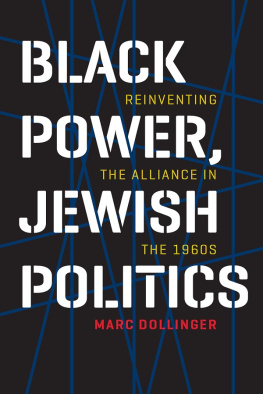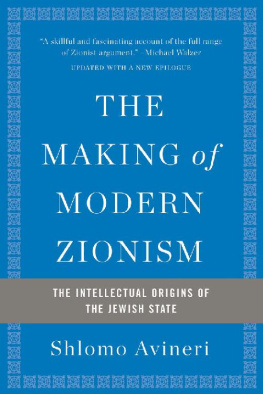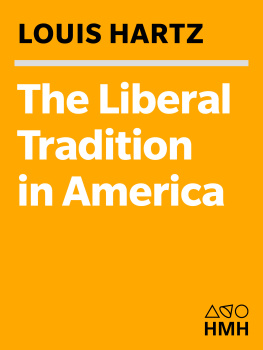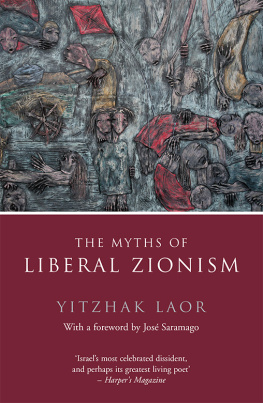WHAT DOES A JEW WANT?
Insurrections: Critical Studies in Religion, Politics, and Culture
INSURRECTIONS: CRITICAL STUDIES IN RELIGION, POLITICS, AND CULTURE
Slavoj iek, Clayton Crockett, Creston Davis, Jeffrey W. Robbins, editors
The intersection of religion, politics, and culture is one of the most discussed areas in theory today. It also has the deepest and most wide-ranging impact on the world. Insurrections: Critical Studies in Religion, Politics, and Culture will bring the tools of philosophy and critical theory to the political implications of the religious turn. The series will address a range of religious traditions and political viewpoints in the United States, Europe, and other parts of the world. Without advocating any specific religious or theological stance, the series aims nonetheless to be faithful to the radical emancipatory potential of religion.
After the Death of God, John D. Caputo and Gianni Vattimo,
edited by Jeffrey W. Robbins
The Politics of Postsecular Religion: Mourning Secular Futures,
Ananda Abeysekara
Nietzsche and Levinas: After the Death of a Certain God,
edited by Jill Stauffer and Bettina Bergo
Strange Wonder: The Closure of Metaphysics and the Opening of Awe,
Mary-Jane Rubenstein
Religion and the Specter of the West: Sikhism, India, Postcoloniality, and the Politics of Translation,
Arvind Mandair
Plasticity at the Dusk of Writing: Dialectic, Destruction, Deconstruction,
Catherine Malabou
Anatheism: Returning to God After God,
Richard Kearney
Rage and Time: A Psychopolitical Investigation,
Peter Sloterdijk
Radical Political Theology: Religion and Politics After Liberalism,
Clayton Crockett
Radical Democracy and Political Theology,
Jeffrey W. Robbins
Hegel and the Infinite: Religion, Politics, and Dialectic,
edited by Slavoj iek Clayton Crockett, and Creston Davis
WHAT DOES A JEW WANT?
On Binationalism and Other Specters

UDI ALONI
CONVERSATIONS AND COMMENTS BY
ALAIN BADIOU, JUDITH BUTLER, AND SLAVOJ IEK

Columbia University Press New York
Columbia University Press
Publishers Since 1893
New York Chichester, West Sussex
cup.columbia.edu
Copyright 2011 Columbia University Press
All rights reserved
E-ISBN 978-0-231-52737-8
Library of Congress Cataloging-in-Publication Data
Aloni, Udi.
What does a Jew Want? : on binationalism and other specters / Udi Aloni; edited by Slavoj iek ; conversations and comments by Alain Badiou, Judith Butler, and Slavoj iek
p. cm.
Includes bibliographical references.
ISBN 978-0-231-15758-2 (cloth: alk. paper)
ISBN 978-0-231-15759-9 (pbk.: alk. paper)
ISBN 978-0-231-52737-8 (e-book)
1. Aloni, Udi. 2. Arab-Israeli conflictInfluence. 3. IsraelPolitics and government21st centuryPhilosophy. 4. Motion picturesPolitical aspectsIsrael. 5. JewsIdentity. 6. Jewish philosophy. I. iek, Slavoj. II. Badiou, Alain. III. Butler, Judith, 1956 IV. Title.
DS126.5.A694 2011
956.9405'4dc22 2010045022
A Columbia University Press E-book.
CUP would be pleased to hear about your reading experience with this e-book at .
References to Internet Web sites (URLs) were accurate at the time of writing. Neither the author nor Columbia University Press is responsible for Web sites that may have expired or changed since the book was prepared.
Don Quixote
TO MY MOTHER, Shulamit Aloni
In the bedroom a drawing of Don Quixote.
In the living room a ceramic Don Quixote.
In the yard a sculpture of Don Quixote.
It seems to me youve placed them as an emblem
to remind you of the absurd, or pathetic, aspect of the struggle.
In your greatest battles the small demon of doubt was always there.
Youve acted with the passion of the Man of La Mancha, and the doubt
and self-irony of Cervantes. I think it shaped your unique voice,
a radical voice
Devoid of self-importance,
fighting for whats right without
self-righteousness.
The questions Freud therefore leaves us with are: can so utterly indecisive and so deeply undetermined a history ever be written? In what language, and with what sort of vocabulary? Can it aspire to the conditions of a politics of diaspora life? Can it ever become the not-so-precarious foundation in the land of Jews and Palestinians of a bi-national state in which Israel and Palestine are parts, rather than antagonists, of each others history and underlying reality? I myself believe so.
Edward Said, Freud and the Non-European
It is well-known that the Jews were forbidden to look into the future. The Torah and the prayers instructed them, by contrast, in remembrance. This disenchanted those who fell prey to the future, who sought advice from the soothsayers. For that reason the future did not, however, turn into a homogenous and empty time for the Jews. For in it every second was the narrow gate, through which the Messiah could enter.
Walter Benjamin, On the Concept of History
This book is an attempt to think, to act, and to create through these two reflections.
Tel Aviv, 2010
CONTENTS
Udi Alonis collection renews a theological reflection in the midst of ordinary life, popular culture, contemporary scenes of life and death. His film, Local Angel, brings us into visual contact with Walter Benjamins concept of the ruin, that animated fragment from the past that drives us in ways that we cannot always know. He moves to the center of violent conflict between Israelis and Palestinians only to find there remnants of a theological relation to the Temple Mount that furtively circumscribes the struggle over land, property, ownership, and claims to time and space. In his film Forgiveness it is the land and the mental institution built there that acts as the ruin, foreclosing the possibility of a return to the death and displacement of Palestinians who lived in the village of Deir Yassin. The mental institution receives the Jew who emerges from the Nazi genocide as a muselmanntraumatized to the point of losing speech and self-reference. So the muselmann, the Muslim, the Christian, and the Jew are compounded at this multiple and unfathomable site of loss where, on the land where a Palestinian village was destroyed, an Israeli mental institution is built to receive the destroyed lives of Jews from the concentration camps. Madness ensues, but what alternative is there? In his meditation Jocastas Dream Aloni makes clear that there are those humans who are murdered from the start, who live their murdered lives not only in spite of their apparent death but through the endless terms of that deathlike world. Suicide is not simply a tragic conclusion but merely a sign that one has ceased to be able to stop the cycle of violence and the evisceration of those sites that allow for mourning to begin. There is no single loss in this terrain of destroyed villages, destroyed lives, only a question of whether the law that mandates continuing destruction can be openly opposed, whether the sites can be reclaimed for open mourning, and whether a new generation can break the curse that animates the places in their partial memories and constitutive disavowals, whether a wide enough angle can take in the full array of loss, mourning, violence, and inadvertent hope. Since hope, too, emerges in tandem with destruction, only because loss binds us, and binding is the condition for new community.
Next page










